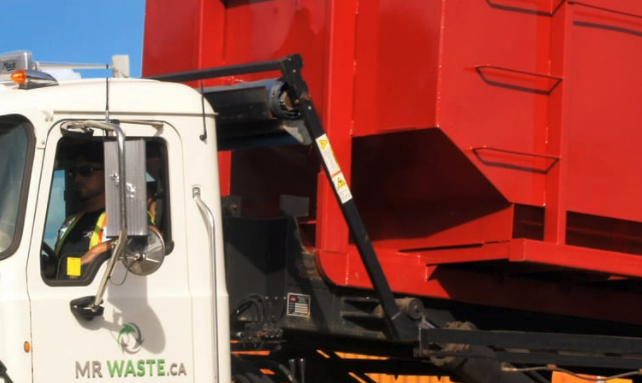Avoid Additional Fees
To avoid any additional fees on top of your bin, it is vital that you make sure you’re disposing of your waste correctly. Mr. Waste bins accept almost anything – but you must be weary of the exceptions – hazardous materials being a big one.
Here is a list of the most common hazardous materials that are thrown into our dumpsters that you should avoid:
- Tires
- Paint
- Asbestos
- Ashes
- Fluorescent light bulbs
- Batteries
- Chemicals
- Pesticides
- Propane tanks
Avoid Placing Your Bin In The Wrong Places
By the “wrong places” we mean it’s in your best interest to avoid resting your bin in places where it may block the view of drivers or pedestrians, damage your lawn or driveway or in a place where it makes it impossible to park your car comfortably.
There are a few things to keep in mind about placement before your bin arrives. Ask yourself these questions to find the best possible spot for your bin to be parked:
Is there enough room in the driveway to come and go with your car?
- Can you avoid placing it at the end of your driveway where it may block the view of drivers and pedestrians?
- Are you blocking any doors?
- Is there enough room at the walk-in end of the dumpster for easy entry? This is especially important if you have heavy, bulky items you can’t toss in over the top.
Avoid Damage to Your Property
Take into account what the most travelled path from your site to your dumpster is. You want to make sure that the path isn’t in the way of any flower beds. It’s a good idea to avoid your lawn altogether so there aren’t any impressions made. Place sheets of plywood down if your path ends up being on your lawn.
Avoid Improper Placement
Here are some spots that aren’t so ideal to place your dumpster:
Sloped Surfaces
Heavy dumpster + steep slope = runaway dumpster… this is especially true in winter, early spring or late fall, when frost or ice makes surfaces slick.
Another Person’s Property
It’s just the courteous thing to do! Be a respectful neighbour and make sure your bin is placed on your property.
City Streets
Depending on your municipality, you may need to get a permit to keep it on a city street legally. Plan ahead. These permits aren’t expensive, but city halls aren’t usually open on the weekends, when your project might take place.
Understand the rental company’s policies.
Every company has different policies regarding overage fees and what constitutes an overage.
You can be charged extra fees for an overflowing or overweight dumpster, as well as for loading prohibited items.
Avoid hidden fees and “surprises” later by understanding the fine print up front.
The basics you should know before signing a contract:
- Cost of each dumpster size
- The weight allowance of each dumpster
- Cost per ton for exceeding each dumpster’s weight allowance
- Types of debris/junk allowed in the dumpsters
Keep the dumpster covered when it’s raining
Debris weighs far more when wet, especially construction debris and other wastes that soak the water right in.
| Type of Debris/Waste | Weight per Yard (Dry) | Weight per Yard (Wet) |
| Garbage | 600 lbs. | 1,240 lbs. |
| Leaves | 150 lbs. | 550 lbs. |
| Gravel | 2,565 lbs. | 3,375 lbs. |
If significant amounts of precipitation are in the forecast, plan to have a large tarp on hand to cover the dumpster when not in use. Some dumpster rental companies can supply this upon request.
A dumpster placed in a covered area of your property, such as a large garage, pole barn, or shelter would also keep the contents dry.
Bonus – Avoid NOT Renting A Mr. Waste Dumpster
Now you know what NOT to do when it’s time to rent a dumpster. Breathe easy, knowing your experience will be mistake-free.
When it’s time to tackle that project and pitch your debris, contact Mr. Waste for assistance, we got your back!

